

Denver DSA Endorses Melat Kiros for Congress in CO’s 1st District
— The chapter’s first federal endorsement
Denver Democratic Socialists of America (DDSA) is the Denver-area chapter of the Democratic Socialists of America, the largest socialist organization in the United States. Our members are building enduring working-class power right here in the Mile High City. Democratic Socialists believe that both the economy and society should be run by the people—to meet public needs, not to make profits for the few.
DENVER, CO – Denver DSA members voted overwhelmingly on Wednesday to endorse Melat Kiros for Colorado’s 1st Congressional District in the 2026 Democratic primary on June 30th, with 94.7% of voting members in favor of her endorsement.
She is running against incumbent Diana DeGette, who has represented the district since 1997. In her 29-year tenure, DeGette has taken nearly $95,000 from AIPAC and hundreds of thousands of dollars from the pharmaceutical industry.
“As a proud Democratic Socialist, I’m honored to receive the endorsement of Denver DSA at a moment when so many people are demanding more from our politics and from each other. Across Denver, working people are stepping forward and saying we deserve a city where housing is affordable, healthcare is accessible, and a government that actually works for working people, not corporate lobbyists,” said Denver DSA-endorsed candidate for Congress in CO-1 Melat Kiros. “This endorsement isn’t just about one campaign, it’s about a growing movement of neighbors who believe that ordinary people, organized together, can shape the future of our city. This is our moment to build something better and together, we will fight like hell for it.”
“Denverites deserve a Congresswoman with the courage to stand up for what’s right, even when that means facing backlash from powerful corporate interests. Melat Kiros continues to demonstrate that courage as she fights with us for a world in which all people can live dignified lives, from the Platte to Palestine,” said Denver DSA Co-Chair Brynn Lemos.
About Melat Kiros: Melat is a barista, graduate student, and recovering lawyer who was fired from her job as an attorney for refusing to stay silent about Israel’s genocide in Palestine. Now she’s running to deliver Medicare For All, affordable housing, universal childcare, an arms embargo, and radical sustainability for working class-Coloradans. Her endorsements include City Councilmember and Denver DSA member Sarah Parady, Justice Democrats, Sunrise Movement, and now the Denver Democratic Socialists of America.
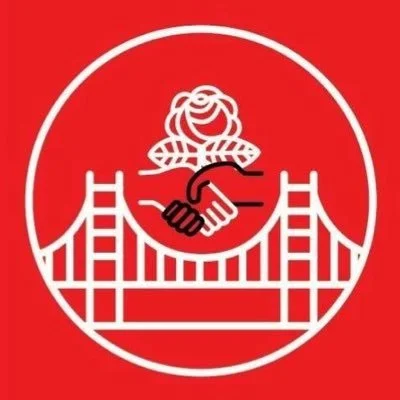

Capitalism Thrives on Human Exploitation: From Chattel Slavery to Modern Human Trafficking
The crimes of Epstein, Trump, and their ilk are only the most recent representatives of a class that has profited from the exploitation and abuse of human bodies since the rise of chattel slavery and the capitalist system that it sustained. While the law and moral attitudes have changed over centuries, there has never been a real confrontation, nor any meaningful end to systemic human trafficking. Open-air slave markets still exist in parts of the world. Immigration status is weaponized to force people into indentured servitude. And powerful men and women continue to profit from sex trafficking years after Epstein’s death.
While the crimes committed against children are uniquely heinous, as socialists we must acknowledge that this is not an aberration nor the unintended consequence of wealth accumulation. In fact, the abuse of children is a fundamental feature of settler colonialism-capitalism. It is a key component of the violence used to steal land and resources from Indigenous people. We can see this perpetuated throughout generations, from Indigenous or Black children stolen from their families and forced into chains, residential schools or foster systems, to Palestinian children locked in Israeli military prisons, and children sitting in ICE concentration camps right now. Under capitalism, the physical and sexual abuse of children is politically motivated and structurally enabled.
It’s no coincidence that the ongoing European colonial projects in the Americas, Australia and Palestine all share the same systemic strategy of parent/child separation and degrading abuse. It is no coincidence that Epstein’s trafficking operation was headquartered on a privately owned Caribbean island, nor that his activities were aided and covered up by more than one settler-colonial government, and capitalist financial institution. It is no coincidence that Epstein’s first public victim was a trans woman who was vilified by the media and disregarded by the courts.
The victims of the Epstein trafficking ring aren’t isolated from other people the ruling class keeps intentionally exploitable: the marginalized, the undocumented, the homeless, the incarcerated and in fact, the whole of the global working class. Capitalism debases all of humanity for the profit and pleasure of the ruling class. The ideology of settler-colonialism perpetuates violent ownership, extraction, exploitation, and separation of people from the land, from one another, and from their own autonomy.
This is why DSA fights to overthrow this system of oppression and replace it with one of collective benefit and community care. As socialists, we seek to build a world free from exploitation and abuse of all kinds: economic, physical or sexual. Our struggles for liberation are intimately intertwined. To anyone who wants to take up the fight against the abusive ruling class, to protect women, children and workers all over the world, join us in the fight for socialism!


DSA SF Stands in Solidarity with Survivors of Trafficking and Sexual Abuse, Demands Justice Against Sexual Exploitation
As more information from the Epstein files come to light, we learn with outrage, sadness and disgust about only some of the atrocities inflicted on women and children by Jeffrey Epstein and his associates, who notably include sitting U.S. president Donald Trump, himself a convicted criminal abuser of women.
These crimes illustrate, perhaps more clearly than ever, the total contempt for women and children by the billionaire class, as objects to be used for their personal enjoyment. These horrific acts aren’t the isolated indiscretions of a lone predator or predators: child abuse, sex trafficking, sexual assault, and the humiliation of women at the hands of the wealthy elite are policy choices, inevitable under a capitalist system that shields the wealthy elite by allowing them to concentrate power to exploit without limit and without consequence.
Put simply, if you build a system where some people are effectively untouchable in the eyes of the law, those people are going to behave like they are untouchable.
This system that enables the abuse of girls in mansions and on private islands is the same one that wages violence against immigrants in detention centers, against homeless people sleeping on the street, against the millions of people held in jails worldwide, and against the international working class, exploited for their labor by the same wealthy elite.
We stand firmly in solidarity with the women and children who have been crushed by the full weight of this capitalist system. DSA fights to overthrow this system of oppression and replace it with one free of exploitation and abuse, and where no one escapes justice. Join us in this fight: dsasf.org/join.
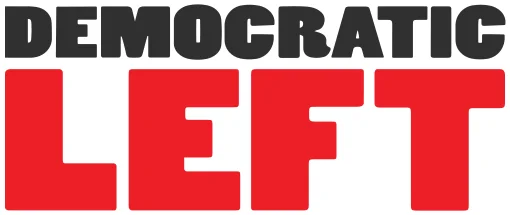

Stop and Smell the Roses
A Californian reflects on his trip to pitch in on the last days of the Mamdani campaign
The post Stop and Smell the Roses appeared first on Democratic Left.
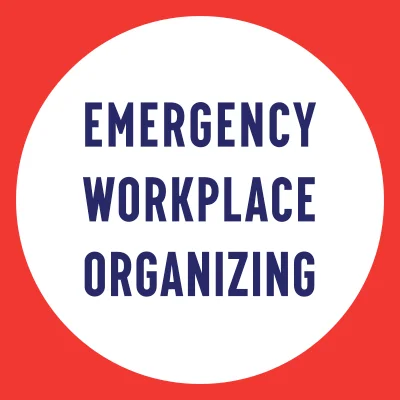

Resources for resisting ICE in your workplace
Whether or not you're in a union, you can build a strong defense against ICE in your workplace. Here's how.
The post Resources for resisting ICE in your workplace appeared first on EWOC.
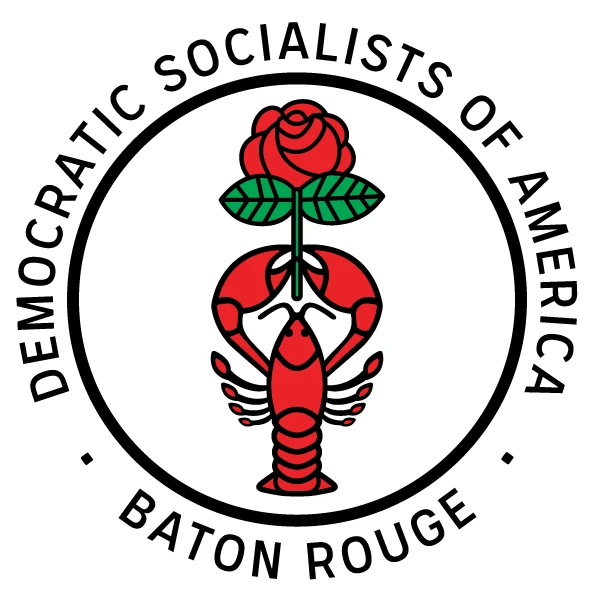

You cease, I fire


How to prepare for a general strike
Recent protests against ICE in Minnesota have led to a renewed interest in general strikes, but they take a higher level of organizing to pull off.
The post How to prepare for a general strike appeared first on EWOC.
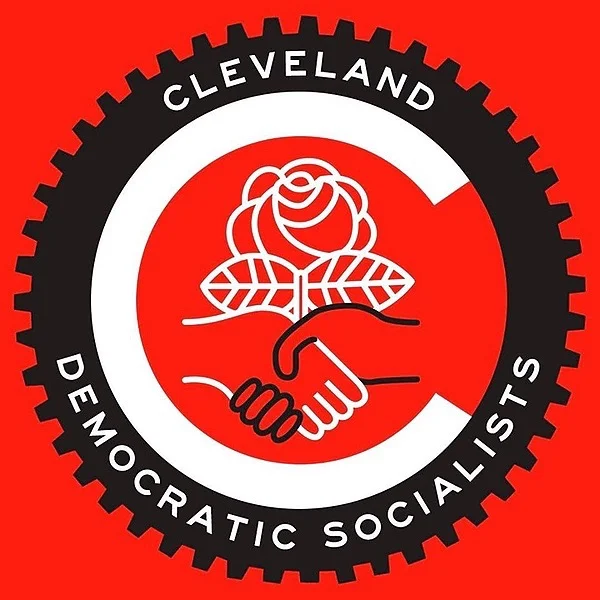

Winter Storm: Rapid Response in Minneapolis
Author: Russell K.
Like most of you, I have seen the daily horrors in Minneapolis from the deceptively secure distance of my phone and my television. I have seen, a dozen times, the murder of an innocent woman by masked criminals with badges. I have seen through these screens how she was smeared, how the Trump administration reacted, and how the situation escalated in Minneapolis.
ICE has created a deliberate environment of fear and intimidation. There is no other reason for them to be patrolling schools and grocery stores and even churches. It is true that they have brought terror upon the people of Minneapolis, but the people have shown great courage in resisting these masked criminals. The motivated people of Minnesota have put their lives and careers in jeopardy to protect the least among them and their example should inspire us all. Particularly relevant to us is the rumor that ICE will soon be surging to Springfield, Ohio. Should this be true, their example poses a challenge to us – do we have the strength and courage to resist as they have? Or will we prioritize our own safety and comfort over the lives of our neighbors?
Video upon video exists of heavily armed masked men prowling the streets, breaking into homes and cars, and splitting up families. But I saw, too, how the people of Minneapolis resisted. How they refused to stand idly by and watch their neighbors become victims. Finally, I was told that while what I was seeing online from ICE was bad, it was worse on the ground. Eventually I decided to see if that was true, to go and see how the ground looked for myself.



The people of the Twin Cities and Minnesota are enduring a great ordeal. They are tired, but they remain determined to resist. They are scared, but despite all they have endured, their hope remains undiminished. ICE themselves have made no secret of what they are doing – they are deliberately terrorizing the people of Minnesota. According to a DSA member I grew acquainted with: “Everyone here has been tear-gassed or knows someone who has.” She herself was tear-gassed by state police when people protested the shooting of a Venezuelan man by ICE in the north of the city.
Efforts have been made to document as much of ICE’s violence as possible. Photos and videos were encouraged and forwarded to the ACLU in the hopes of eventual prosecution. The following is my own small piece of documentation, a recollection of the time I spent in Minneapolis.
Tuesday (1/20):
I arrived on Monday night, but Tuesday was my first full day in Minneapolis. Having signed up to Twin Cities DSA’s (TCDSA)’s daily ICE bulletin, I read about a church, Dios Habla Hoy (DHH), that was giving out food to families sheltering in place, so I started the day there.
I arrived and joined in lifting boxes. The center of the church had been turned into a ring of tables, where one person would bring a box into the circle for another to stock it from outside. The box would reach the end and be handed off to a human chain of people. The box would then make its journey down the steps and be loaded into a truck, where it would be brought to the loading station outside for drivers. There could be as many as three human chains at any given time, bringing food deliveries inside and prepped food outside.
Speaking with TZ, a knowledgeable volunteer who was handling driver registrations, I learned about the church. They had only started distributing in December with just 20 families. By the time I spoke with them, they were making 800 to 1,000 deliveries each day. They sourced food from donations, food banks, and recyclers. Nearly every building in Minneapolis I entered had tables piled with supplies. They often had too many volunteers, to the point where the general chaos could slow them down, but they were grateful for the efforts of people and were holding trainings constantly.
After lifting many boxes and planning to return for driver training (it was technically full, but TZ, understanding my limited time, snagged me a seat), I volunteered to stand watch outside. My hour and a half watch was mostly uneventful, but the church was being watched. At some point, three large vehicles with New Mexico plates showed up in short succession at the restaurant across from the church. We suspected ICE. Two patrollers came, sat near them at the restaurant, and all but confirmed them to be so. This had become quite normal for the church over the past weeks. After leaving DHH this evening, I would encounter my first, but not last, still running vehicle on the side of the road from which ICE had abducted the driver.
Later that evening, I arrived outside the TCDSA chapter’s office. I did not have a personal contact, but the calendar said that a meeting was taking place inside. Given the cars and the lit windows, I assumed this to be true. I rang a buzzer, but I was not let in. I occupied myself outside, reading. Eventually a comrade left the building, and I greeted them at the door. We spoke for a few minutes, I showed him my membership card, and I was brought into the office where a number of comrades were chatting. They have a lovely office, I must say, but they did not want it photographed.
I spoke with a few of them before a person by the name of J came in. J is the TCDSA’s membership coordinator and began to explain and answer questions on what activities chapter members were doing and what TCDSA as a whole had been up to. Early on, TCDSA had realized that they probably wouldn’t be able to manage a city-wide network but that they could act as organizers and other supportive roles. He did note that, over time, they had risen to lead several neighborhood response teams. He would explain that they had been preparing adequate structures since before the occupation had begun but that there were things that simply could not have been done before the invasion. Beforehand, 24/7 neighborhood watches would not only have been very difficult to maintain, but likely a waste of capacity. After the invasion, they became necessary – and very possible – due to the efforts of motivated volunteers. It was through resources and QR codes that J provided that I got plugged into my first Signal chats and was able to go on patrol – watching, recording, and notifying local communities of ICE activity.
Wednesday (1/21):
I responded to a call where off-duty ICE agents were spotted at a restaurant and spoke with a manager. They stated they did not need backup or anything, but employees were scared. Some volunteers would drive them home.
Later that night, I responded to a call. It had been relayed to our Signal from the downtown RR (rapid response) that a number of ICE agents were at a hotel and staff were afraid. I was quite late to the scene, about 30 minutes after the call had been forwarded. Word had it that an FBI agent or two and a squad of DHS had entered the building only to be chased out by the hotel’s patrons. It had been those same patrons who had spotted them getting ready in the hotel parking lot and sounded the alarm.
Regardless, several staff members and patrons were terrified and we helped make arrangements for them to get home via volunteer drivers and family. Most were secreted out the back entrance, but I remember a young Asian lady who came out the front and looked quite shaken. Given that we saw ICE agents circling the building like vultures, the group of us bunched tightly around her so she couldn’t be seen, quickly got her to a waiting vehicle, and watched her ride leave as we anxiously waited to see if anybody gave chase. We stayed on watch for another half hour or so in the cold night before dispersing.
Thursday (1/22):
My morning started with a conversation with K of the TCDSA comms committee. ICE activities are constant and omnipresent. Neighborhood RR works best because they can arrive on scene so quickly. Quite literally as I was sitting down to speak with K, not even five hundred feet from the coffee shop, ICE was spotted. K, a number of others, and I descended on the scene and ICE soon drove off. This is a clear example of how quickly we can respond to ICE, but it is equally evidence of ICE’s own ubiquity. They can appear anywhere at any time.




The TCDSA has gone through a lot. They recognized early on that they had neither the capacity nor the structures to respond to ICE throughout the city. Instead, they chose to organize, handle outreach, and do all the boring but important desk work required to make everything function behind the scenes.
According to a steering member of TCSDA, “We need to make peace with the fact that we will not be throwing tear gas back at them, we will be the ones organizing and onboarding new volunteers.” Luckily, they had put together a contingency plan back in autumn. This plan was not perfect, obviously, but it gave them an edge when the situation got out of control. Notably, this plan was initially conceived due to the National Guard’s occupation of D.C., rather than any ICE raid.
TCDSA and every other organization has received a huge influx of support – even people with no political background have been agitated into action. This has been both a boon and a challenge. Emergency training has been ongoing and many people have been diverted into neighborhood response teams and other work. K expressed concern that a prolonged occupation could exhaust the city and noted that nearly all other chapter activities have been paused.
When K first came into her position as comms coordinator, it was her and one or two other people. She had been in the general process of expanding the team when the occupation began. Since then, the team has expanded greatly, with volunteers dedicated to social media, K handling the press, and another group for vetting reporters and outlets. The team does have a lack of media-trained personnel, but there is an emergency training very soon.
K has been inundated with requests from the press on the situation. She mentioned that the local press had been more hostile to TCDSA than national reporting. But even international press and documentary crews have been spotted, including outside the Whipple building, a federal stronghold that acts as ICE’s central hub in Minneapolis. It is large, fenced off, and directly connected to the neighboring Fort Snelling, which itself has a sordid history with the local Native nations. The Whipple building is where immigrants and detainees have been taken by ICE and where all manner of abuse has been perpetrated. I personally saw Chinese reporters at the Whipple building and a French reporter outside where Vice President JD Vance spoke later that evening.

The TCDSA has generally criticized state officials for their weak statements and lack of meaningful responses, reserving their praise for the city council. Much of their work has been dedicated to turnout for the ICEOUT protest on the 23rd of January. There has also been an effort to canvas businesses, in order to establish contact, teach them how they can respond in a crisis, find out if they have a plan for vulnerable employees, and provide them with resources. Many businesses and buildings throughout the metro area have put up signs designating them as private spaces, prohibiting the entry of law enforcement without a warrant or their use as staging areas.
Speaking on law enforcement, K said that though she wouldn’t be surprised to see state police help ICE, as they have mostly been suppressing protestors, such as when she, herself, was tear gassed by them. The local police, though, have mostly tried to stay out of it, seeking to protect what little remains of their reputation since George Floyd.
Many protesters have been detained in the Whipple building. They have been held upwards of 72 hours without probable cause, denied food and water, denied medical attention, denied bathroom facilities, denied legal counsel, been photographed and documented, and generally been abused, berated, and harassed by facility staff. It would be more surprising to say that a person had not yet died within the Whipple than to suggest the opposite.
After finishing with K, I would next go to the Royalston in downtown Minneapolis where Vice President Vance had flown into town. The protest was quite small (everyone else was at home, work, or on patrol) but we had the company of two couches, modified in mockery with large, long-lashed googly eyes and a pink-fabric makeover, which the Secret Service present found amusing. They were surprisingly chill. We even got to explain to one of the older agents that the couches were in reference to an Internet rumor that back in college, JD Vance had had sexual relations with a sofa. Sadly, the Vice President did not pass by us or our couches, but ‘colorful’ insults were thrown at Gregory Bovino, suggesting he consider employment with Willy Wonka. It was around this time today that the temperature really got cold as the wind picked up.


Dios Habla Hoy was my next stop, where I attended a training session for delivery drivers. Among many things, TZ made it clear to all that the church was being watched and drivers had reported being followed. While no drivers had been grabbed (or worse), participation did carry risk. This caution also extended to their recipients, and it was clear that there were a number of protocols in place to keep them safe (personal information was kept only on paper, ready to be destroyed). I should note that ICE is attempting to impersonate DHH and other churches in order to lure in victims, much like the U.S.-sanctioned aid supply points in Gaza, and have put out their own fake food services.
I also went to visit a local brewery where people had gathered to kitbash protest supplies for the next day. We filled bags with water, snacks, gloves, handwarmers, whistles, and first aid materials (particularly treatments for tear gas). Another table over, people were making signs to carry.
I ended the night with a late patrol. It was cold, dark, and generally quiet out in the two suburbs I was in. Other RR chats had a bit more going on. It was on this day that I learned many schools had gone into remote learning. Many classes had reported zero attendance, as parents feared their children being kidnapped.
Friday (1/23):
This morning around 10 o’clock, roughly 100 clerics were arrested blocking the Minneapolis international airport. They understood that they would be arrested for this, but they still chose to do so because the airport was being used to ship out detainees.

From 9-10, I patrolled around Powderhorn and Phillips. Our dispatch was using a grid system to ensure that a driver or commuter could be within a couple minutes of any possible situation. I called out ICE twice during the patrol, but did not witness any arrests. It was noted in the dispatch call that ICE had been trying to box in patrollers with their vehicles; this happened during my patrol to another volunteer and I heard the exchange over the mic. Multiple agents came up to her car, some with weapons drawn. They told her to stop following them and said that this would be her ‘final warning’.
I spent the rest of my morning with DHH. Delivery drivers sign up online for a shift, scan a QR code to join a daily driver chat in person where they can confirm deliveries and report any problems. Once a member of the chat, the driver receives a slip of paper, containing a name, address, and phone number. Drivers are instructed in their training that under no circumstances can they let ICE get a hold of that paper. The church knows they are under observation and drivers have reported being followed. This has forced all drivers to use a buddy system. My buddy was S, a Filipino from Las Vegas, who was new to volunteering at the church.
After a terrifying episode where I briefly lost my slip of paper, I took boxes for five families and headed out. Me and S chatted as we headed out to St. Paul. Only one thing of note occurred: the second delivery’s address was a bit off and we needed to look around to figure out where to deliver it. Now, I was driving a medium-sized, dark vehicle with plates from out of state, and the occupants were two men who clearly didn’t know the area, so we looked quite suspicious. Within a minute of parking, this sweet old lady came out of her home, clearly concerned as to who we were and what we were doing. We explained our situation to her and she went back inside, but this conversation put on display the environment of fear people are living through. We finished our deliveries and headed back.
The march was relatively uneventful. This morning City Council had voted unanimously in favor of the ICEOUT. It was amazing to see all those people, signs, props, etc. It was very cold, averaging -23 degrees (without accounting for wind chill), but it hardly put a dent in the crowd. ICE was still active, of course, and many people continued to patrol their neighborhoods. I took a few pictures, answered a question or two with an independent reporter, and eventually met up with the DSA crowd (visible from their red flags).

Everyone was there: the Party for Socialism and Liberation (PSL), Socialist Alternative, the Communist Party, Indivisible, a group of Handmaidens, a group of Native Americans, groups of students, and others. The mood was festive, even amidst the tension. People yelled, chanted, and screamed. Despite the many warnings not to photograph, many people simply could not help themselves – such was the palpable energy. I saw the elderly and the handicapped being helped along the march. No one would be left behind, not even the turtles (yes, someone brought their turtle). I particularly remember a group that had brought a massive tarp, emblazoned with the interlocking hands of workers of all races. They had stopped at a corner and were pulling the tarp up and down. As they raised the tarp, overjoyed young marchers would sprint beneath it to the other side. It was still cold.
There were a number of buildings along the route that were open for people to warm themselves. People were giving out handwarmers, food, and water. A number of people had been given protest kits with additional first aid and tools to handle tear gas.
The march led up to the Target Center stadium. Initially the Center required tickets, but that was quickly waived as the security lines left the stadium. Inside, on a balcony overlooking the crowd, was a dancing Portland frog and a band.




I stayed at the stadium rally for roughly two hours. The previously mentioned Handmaidens had formed a row up front and you could see other groups clustered around the stadium. There was music, a comedian, and a number of speakers. There were Native American leaders, a Muslim teacher, union organizers, an old Southern Baptist preacher, and more. It was noted that over twenty unions worked together to sponsor the event and that five hundred businesses voluntarily closed their doors. Others, presumably, had no choice but to do so.
The Communication Workers of America (CWA) speaker, in particular, spoke of how they viewed each other as family, and that when ICE had taken two or three of their members, they had lost more than just workers. They had lost family, and they had to do everything in their power to get them back. That is what community looks like. It is a lesson we all should take to heart.
Shortly after that, I took my leave. The march stopped at 4, but even at 6:30, outside the Target Center, people were still making their voices heard, in spite of the cold. Over the next 12 or so hours, driving through the dark night, my mind swirled with all the things I had seen, done, and experienced over the last week.
More than any other emotion, I felt rage. The things that I had seen, the stories I had heard, the grave and callous injustices of the situation made my blood boil, as it should any decent human being. But I also saw hope in how their community had come together, and how motivated workers could so quickly build their own systems of resistance when the current system fails us. It is nothing short of inspiring.
The lessons of Minnesota, and how the system continuously fails us as people, are lessons to all of us who want a better tomorrow. They remind us that the powers that be want us to feel afraid and alone. They remind us that the only antidote to that alienation is to seek community with one another, that together there still lies the ability to build better, more just systems. We the People will not comply with a fascist America.
Update:
Driving home from Minnesota, I thought I could not be angrier towards ICE. I was wrong. It is genuinely difficult, even now, to express the anger I feel towards these murders, of Alex Pretti, and of other innocent victims as well. I think of too, if I had asked for that Saturday off instead of the previous Sunday, how easily it could have been me on patrol that Saturday morning as I had been on Friday, just the day before.
The murders ICE has committed have not been accidents. The administration gave guns and badges to murderous thugs and told them that they have total immunity. The administration didn’t know who was going to die, but they should have been well aware that people were going to die. They did not care. Worse, members of the cabinet almost certainly wanted that violence.
The complete moral outcry towards the murder of a nurse who was protecting a woman from thugs has been heartening to say the least. The pressure has worked, to a degree, as it seems ICE will be pulling out of Minnesota. But we can not allow this to lull us into complacency — this only worked because of the hours of work people put into it, going out, organizing, and showing up in the streets, doing their absolute damnedest to make ICE’s job as hard as possible in Minnesota. We must continue this work, if in no small part, to protect us and our communities from further ICE aggression. The pressure must continue with the goal of completely eradicating ICE, there is simply no other way to ensure their crimes are halted. So please remember, Fuck ICE, and support Cleveland DSA and your local organizations in this fight.
The post Winter Storm: Rapid Response in Minneapolis appeared first on Democratic Socialists of America.
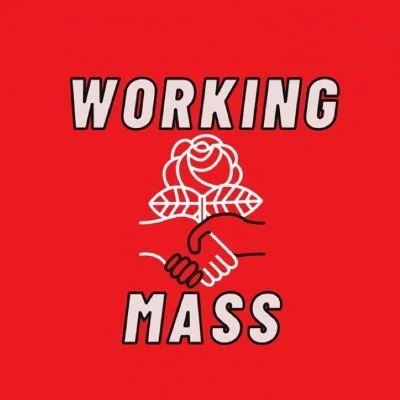

The Fall and Rise of Massachusetts Rent Control

By: Kelly Regan
BOSTON, MA – “Uprooting members of a community degrades the public sphere,” observed Ben Greer, a Boston DSA member in multi-family residential architecture who works on affordable housing projects, decades after the fall of rent control in Massachusetts.
Displacement steals people – and thus, the public.
Statewide rent control made Boston a more affordable city for low- and moderate-income earners throughout the 1970s. This returned the city to rent control after landlords began chipping away at wartime stabilization, as tenants led by an Allston-Brighton tenant named Anita Bromberg pressured City Hall in a tenant alliance that included middle-class renters, student tenants, low-income senior citizens, and allied organizers.
Tenants won rent control before staving off landlord greed for a few decades through the base-building that built collective organizational power: tenant organizing, eviction blocking, high-profile rallies, agitational publications, even an attempted citywide rent strike.
After the landlords finally pushed through tenant defenses to win the 1994 ballot referendum, raising 90% of their funds for the campaign from big corporations, rents in cities like Boston skyrocketed. The rent increases had nothing to do with popular will; Boston, Brookline, and Cambridge all voted against the initiative, only for the City of Cambridge to see rents double in just four years. Meanwhile, Cambridge voters routinely elected wide majorities to their city council in favor of rent control.
The landlords of the Small Property Owners’ Association (SPOA) led the ballot initiative even though units had been “decontrolled” since 1975. Landlords could snatch back rent-stabilized units to inflate the prices after they had been stabilized for tenants. Brookline had decontrolled most of its units before the 1994 law. Landlords kept eating away, one decontrol after another.
By the time of the ballot initiative, 60,000 units were decontrolled versus only 20,000 controlled.
The Role of Struggle
While much of the story of the fall of rent control ccurred in the Legislature, the fall of tenant organizations played a key role. One at the center of the fight to keep rent control was the Cambridge Tenants Organizing Committee (CTOC). When tenants fought against a plan to turn working class Cambridge into “the brain center of the military-industrial complex,” they built a committee of tenants and built an organization out of member dues. Ultimately, CTOC disbanded as both internal dysfunction and changing political climate led CTOC to disorganize.
Cultural hubs throughout Boston, Cambridge, Somerville, and other Massachusetts cities died out as artists and eccentrics were forced to relocate to more suburban and rural areas. The end of rent control also changed the bourgeois business landscape, with many small enterprises closing or relocating. This decimated the local economies of entire neighborhoods and closed them off, except for the students and the rich who could afford the upscale chains that survived in places like Harvard Square. The businesses that have been able to stay open have struggled to attract and retain workers due to the state’s high cost.
As housing costs in Massachusetts continue to rise, many renters find themselves severely cost-burdened. This increase is felt not just by low-income earners, but also by middle-income earners, who are increasingly cost-burdened by rent.
Since there are currently no restrictions on rent increases, some Massachusetts residents see increases of hundreds of dollars when renewing their leases. Residents who can’t afford the steep hike in rent must find a new home. Worcester has seen an exodus of residents who can no longer afford the city’s cost of living. Tenants from Boston are displaced to the suburbs are displaced to Worcester are displaced out; every single one leaves a void, a home lost.

Rent Control in 2026
Thirty two years after rent control was banned in Massachusetts, housing justice advocates want to bring it back. Last summer, Homes for All Mass filed an initiative petition with Attorney General Andrea Campbell’s office as the first step in a lengthy process to get the rent control ballot measure in front of Massachusetts voters.
Greer said:
All people deserve stability. Rent control allows Massachusetts tenants to be able to settle within their neighborhoods, raise families, and contribute to the community without having to fear displacement.
The 2026 ballot measure would limit rent increases to the cost of living increase with a 5% cap with exemptions for owner-occupied buildings with four or fewer units and new builds within the first ten years.
The next phase, which is collecting 74,574 certified signatures, began on September 5, 2025. For a signature to count, it has to be verified by the city clerk as coming from a registered voter. This is to ensure that signatures come from Massachusetts residents. Illegible signatures or signatures from residents outside of Massachusetts are not counted.
Boston DSA members voted to endorse Homes for All Massachusetts ballot question campaign to pass rent control in September 2025. The Homes For All coalition included organizations like City Life/Vida Urbana, Community Action Agency of Somerville, and the Chinese Progressive Association. Members in Boston DSA helped collect 1,298 of the 124,000 total signatures collected across multiple counties surrounding the Boston area.
Dominic Salvucci, a Boston DSA member living in Lawrence, Massachusetts, organized over 14 canvasses in his area. Salvucci noted that the campaign allowed him to have interesting conversations with his neighbors and bring in new organizers to Boston DSA.
According to Salvucci, the method “was also helpful in bringing in new membership and expanding the idea of class consciousness to inactive but sympathetic socialists in the region.”
Submitting at least 74,574 signatures means the Legislature has until June 2026 to vote on adopting the rent control legislation. If the Legislature votes against, 12,429 more certified signatures must be collected for rent control to be on the 2026 ballot.
While Governor Healy has spoken against rent control, other politicians have spoken in support. Boston Mayor Wu made rent control part of her platform. The executive has previously endorsed rent control and stated:
We know that other cities across the country who have implemented rent stabilization and rent control are seeing it working.
The Mayor is joined also by some legislators. Massachusetts State Representative and Boston DSA member Erika Uyterhoeven also supported the signature collection campaign for rent control. Uyterhoeven said:
Every time I’ve asked someone to collect signatures, it’s an enthusiastic yes to volunteering and joining the Homes for All coalition. I also believe this is vital work for DSA to deepen our coalition and build our power by building up our membership’s capacity for the fight ahead.
However, the bulwark of support — much like last time, in defense of rent control — has been found at the municipal level. Cities throughout Massachusetts have expressed support for rent control regulation. The Boston City Council passed a resolution in support of the rent control bill on January 30th. The cities of Easthampton and Northampton have passed similar resolutions in support of this rent control legislation. City councils signing on in support of rent control legislation doesn’t guarantee that the House or Senate will pass a rent control bill. It does show that rent control is popular among residents of those cities, which could sway some legislators.

The Landlords’ Legislature
It is unlikely that the Legislature will act on the rent control bill, even if some legislators may be exceptions in supporting rent control. The Boston Globe found that more than one in four Massachusetts legislators own multiple homes or properties. This is unsurprising in a country where the vast majority of legislators are not tenants in any state. The Globe also reported that, in 2023, at least 36 legislators own commercial, residential, or short-term rental properties. With so many landlords in the Massachusetts legislature, it’s no surprise that the fight for rent control has been an uphill battle.
And some of the same opponents remain as stalwart interest groups influencing legislative decision-making. The president of the same Small Property Owners’ Association (SPOA) that led the successful campaign to vanquish Massachusetts rent control last time has threatened his own personal capital strike. As the landlord leader lamented to the Wall Street Journal:
He later took ownership of that property, but said he sold it last year for fear rent control would return. He said he still owns five units in Beverly and Rockport, two communities northeast of Boston, but that he would consider leaving the business and even the state if the ballot measure passes.
Some Massachusetts residents are initially wary of rent control precisely because much of the conversation around rent control has been dominated by landlords.
While collecting signatures, Salvucci talked with one Massachusetts resident about how capitalist policies have led to a sharp increase in living expenses while stagnating wages. Decades have made the crisis starkly clear. The resident signed the petition for rent control and told Salvucci:
[Rent control] makes more sense when you look at it from the shoes of people who are just trying to make their way now.
When rent control was first won, tenants built the power needed block by block – apartment by apartment, spadework by spadework. The story of the Cambridge Tenants Organizing Committee (CTOC) also promises a road forward. As tenants organize across the region at new complexes in the greatest wave of tenant organizing since the 1970s that won rent control originally, the fight for rent stabilization follows.
The question is who will win this phase of the struggle: landlords, or tenants?
Kelly Regan is the co-chair of Boston DSA’s Housing Working Group.
The post The Fall and Rise of Massachusetts Rent Control appeared first on Working Mass.


CA DSA Endorses Oliver Ma for Lieutenant Governor of California
California DSA delegates, representing chapters from across the state, have voted to endorse Oliver Ma for Lieutenant Governor. Oliver will be CA DSA’s first-ever endorsed statewide candidate and is running on an explicitly democratic socialist platform that articulates a vision of a California that works for working people—not oligarchs and billionaires.
Oliver immigrated to California at age seven and has dedicated his career as a lawyer to protecting the rights of tenants, immigrants, and workers. As an immigrant rights attorney with the ACLU, Oliver has been on the front lines of defending Californians against ICE and the federal government’s terror campaign. When elected, he will shut down the for-profit detention centers that have proliferated across our state, ending the profits made from our exploitation.
One of the primary areas of influence of the Lieutenant Governor is over California’s higher education system. Currently, University of California schools alone have over $32 billion invested in assets tied to genocide and apartheid in Palestine. Not only is Oliver the only candidate to describe the atrocities in Gaza as genocide, he is the only candidate who has promised to divest these funds from Israel and ensure that our higher education institutions are not funding atrocities overseas.
Oliver is committed to building something that lasts beyond his campaign and, in this, building DSA statewide. Oliver understands, like all democratic socialists must, that an organized movement of working people is more than one candidate or one campaign. If you are not in DSA yet, join today and get involved with our statewide organization or in your local chapter’s work.
For more information on Oliver Ma, go to: https://oliverma2026.com/